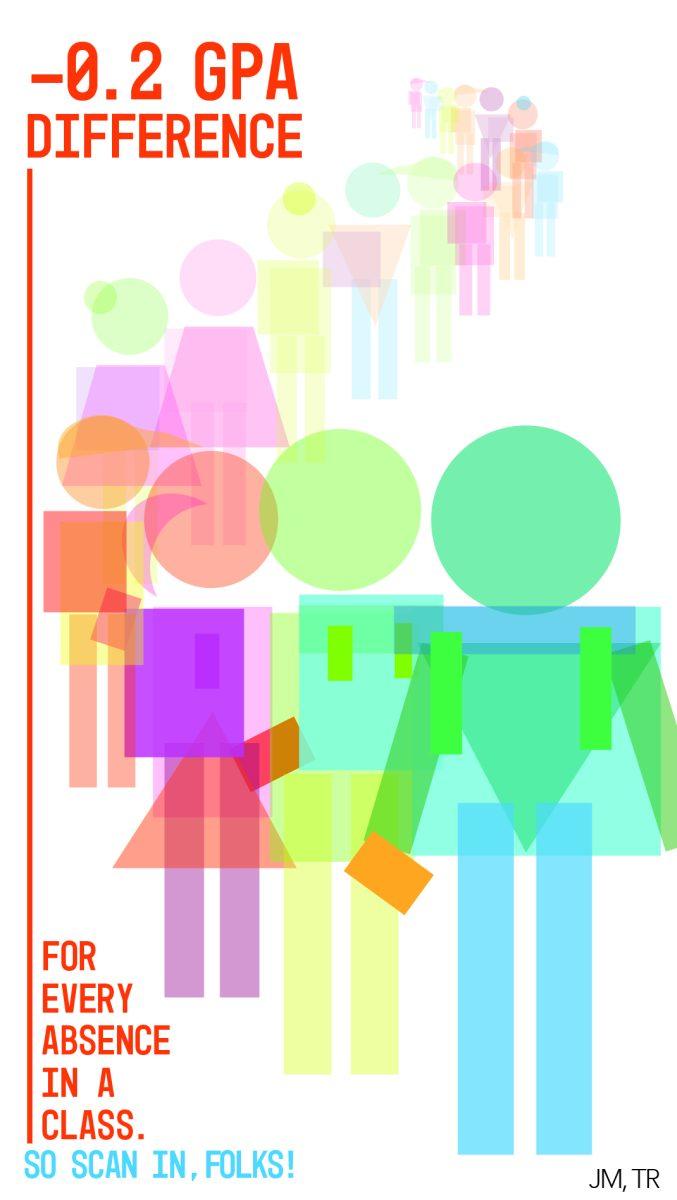Mississippi State University stresses the importance of its students’ attendance, especially the attendance of its freshman class.
This focus on attendance led to MSU’s implementation of electronic scanners across campus, to better record absence records in classrooms.
This way of recording absences does have a major loophole, which some students choose to exploit. Due to the large nature of some lecture hall classrooms, most professors are unable to adequately learn every student’s face and name, which can lead to problems in recording attendance.
The possibility exists to scan-in to a class and leave, or have another student scan-in to a class for you. Both actions are classified as “Academic Fraud” under the MSU Honor Code, and violations of the honor code can lead to punishment from the MSU Honor Code Council.
Rodney Pearson, director of the Center for Student Success, examines absentee data for a living, along with teaching. Pearson explains his thoughts on scanning and leaving.
“I teach a large auditorium class, and I have in my syllabus and talk about it the very first day that I think that is dishonest, and I think it is academic misconduct,” Pearson said. “Once we do that, we have very, very few students who want to be dishonest.”
When asked about ways the administration attempts to tackle academic fraud, Pearson described a couple of examples. The first is to simply have students scan-in at the beginning and end of class periods, which Pearson said MSU has used before. The second involves a teacher scanning their own ID after a student leaves when scanning-in.
Every electronic scanner keeps a log of when an ID is scanned and whose ID was scanned. Due to this, a teacher who sees a student leave prematurely, must scan and review the log to find the student directly prior, which solves the problem teachers face when not knowing names or faces in large lecture halls.
However, Pearson tempers this by assuring, “I don’t think that overall it is a gigantic problem.”
Graduation Positioning System, or GPS, is a program used by the Center for Student Success to track different data collected from around campus. One of its main features is examining the relationship absences have to GPA. Examining a total of 5,368 courses and 78,919 students, GPS found there is a -0.2 GPA difference for every absence in a class.
The Freshman Pathfinders exist to try to instill good attendance behavior early in a student’s career, in hopes to avoid GPS’s data coming to fruition.
If a freshman is beginning to miss class, a Pathfinder appears to help understand or correct the situation. This position, along with SI tutors, is under Pearson’s office.
Seeing as MSU is a publicly-funded university, Pearson believes every student at MSU has a duty. Pearson explained students are essentially wasting taxpayer’s money when they skip classes.
“I believe we have an obligation to [the taxpayers] to go to school. I just really sincerely believe that, and I think that, as a teacher, I have an obligation to give a student a reason to go to class,” Pearson said.
___________________________
Correction: Mississippi State University does not dictate three unexcused absences in a course automatically dropping a letter grade as originally stated in this article. As stated by the MSU Academic Operating Policy and Procedure, “An attendance policy is the purview of an individual instructor, subject to the limitations described later in the document. A policy should include, but is not limited to, how the instructor defines class attendance, particularly as it pertains to in-class responsibilities that go beyond the student’s mere presence in the classroom, how attendance relates to student learning outcomes, the extent of credit or penalty, how excused and unexcused absences are measured, and how all absences are recorded.”
MSU scans the attendance scam
About the Contributor

Dylan Bufkin, Former Editor-in-Chief
Dylan Bufkin served as the Editor-in-Chief of The Reflector from 2020 to 2021.
He also served as the Opinion Editor from 2019 to 2020.
0
Donate to The Reflector
Your donation will support the student journalists of Mississippi State University. Your contribution will allow us to purchase equipment and cover our annual website hosting costs.
More to Discover














